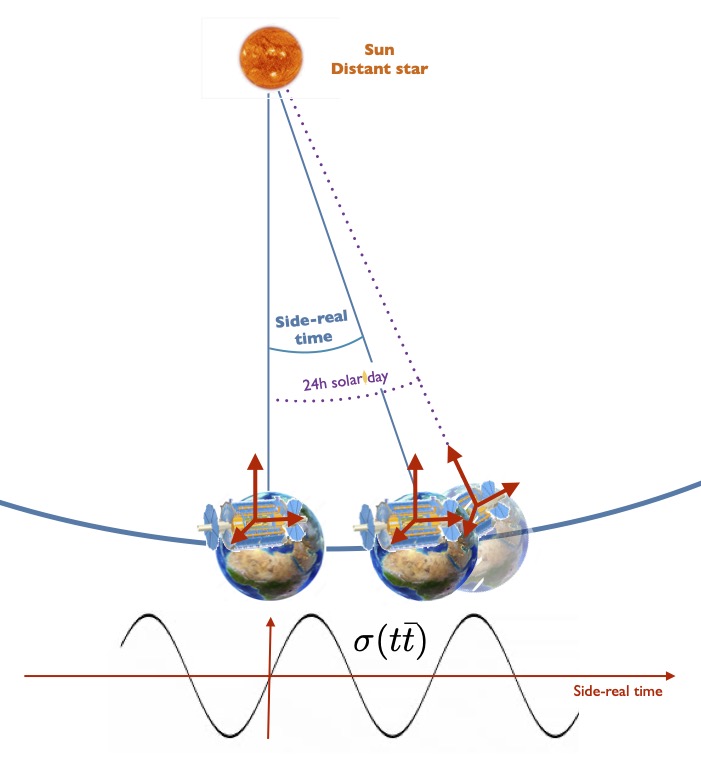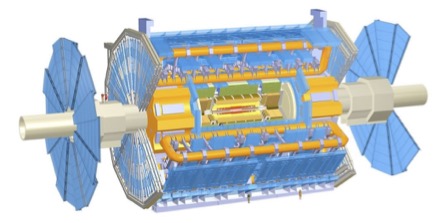DELTA - DIRECT EXPERIMENTAL PROBE OF THE LORENTZ INVARIANCE VIOLATION IN THE TOP-QUARK PHYSICS AT THE ATLAS EXPERIMENT
THIS PROJECT HAS RECEIVED FUNDING FROM THE EUROPEAN UNION’S HORIZON 2020 RESEARCH AND INNOVATION PROGRAMME UNDER THE MARIE SKLODOWSKA-CURIE GRANT AGREEMENT NO 101033496 — DELTA

Jelena Jovićević
Associate research professor
Institute of Physics Belgrade
Pregrevica 118, Belgrade, Serbia
E-mails: jelenaj@ipb.ac.rs, jelena@cern.ch
PROJECT AIM
 The Standard Model (SM) is a theory which accurately describes the elementary constituents of matter and interactions between them at the energy scales we have been able to probe in experiments up to the present day. However, since in the Nature we observe physics phenomena beyond the SM, it is expected that the SM is a low-energy effective approximation of a theory that describes the physics of particles and their interactions in a broader way. Lorentz Invariance is a fundamental symmetry of the SM, but it is not expected to be conserved necessarily at the high energy scale of quantum gravity where space-time could undergo violent fluctuations. The violation of the Lorenz invariance (LIV), which is predicted by some extensions of the SM theory, would manifests itself at energies accessible by the experiments nowadays. This project DELTA, Direct Experimental probe of the Lorentz Invariance violation using top quarks at the ATLAS experiment represents the first search for the possible LIV in the top quark interactions at the ATLAS experiment at CERN’s Large Hadron Collider (LHC). The project also developed innovative approaches to analyse collision data taking into account detector orientation in the space-time continuum.
The Standard Model (SM) is a theory which accurately describes the elementary constituents of matter and interactions between them at the energy scales we have been able to probe in experiments up to the present day. However, since in the Nature we observe physics phenomena beyond the SM, it is expected that the SM is a low-energy effective approximation of a theory that describes the physics of particles and their interactions in a broader way. Lorentz Invariance is a fundamental symmetry of the SM, but it is not expected to be conserved necessarily at the high energy scale of quantum gravity where space-time could undergo violent fluctuations. The violation of the Lorenz invariance (LIV), which is predicted by some extensions of the SM theory, would manifests itself at energies accessible by the experiments nowadays. This project DELTA, Direct Experimental probe of the Lorentz Invariance violation using top quarks at the ATLAS experiment represents the first search for the possible LIV in the top quark interactions at the ATLAS experiment at CERN’s Large Hadron Collider (LHC). The project also developed innovative approaches to analyse collision data taking into account detector orientation in the space-time continuum.

OBJECTIVES
The research objectives of the DELTA project are to further develop existing phenomenological studies to identify observables most sensitive to the violation of the Lorenz invariance (LIV) in the top quark-antiquark pair production, to develop the novel framework for analysing data as a function of the orientation of the experiment in the space-time continuum, to study the time-dependence of the ATLAS detector performance, and to perform state-of-the-art LHC proton-proton collision data analysis probing the Lorenz invariance in the interactions of the top quarks to the unprecedented level.
BEYOND THE STATE OF THE ART
Research and cooperation between the physicists from the domains of the theoretical and experimental physics during the time of the project have resulted directly or indirectly in „beyond the state-of-the-art“ progress in several aspects. First, these have resulted in advanced phenomenological studies by the theoretical physicists on possibilities for testing the Lorentz invariance violation (LIV) at the LHC in the sector of the physic of electroweak and top quark interactions. Second, it has introduced the detailed study of the time-dependence of the ATLAS detector performance and better understanding of its response allowing for a lower uncertainty in the corresponding measurements with this experiment. Third, it has brought the attention to the community of the theoretical physicists about the necessity for dedicated software tools and simulation methods that would allow for the systematic tests of the LIV effects by simultaneous measurement of multiple scattering processes at HEP colliders, and the implementation of the first necessary functionalities in the common HEP software tools has already started, with idea to be used in the future similar measurements at LHC and beyond. Furthermore, the research within this project has initiated similar experimental measurements in the other scattering process at LHC, and the results of these measurements are also expected to be published in the near future.
SOCIETAL IMPLICATIONS
The primary research domain of the project is the field of high energy physics (HEP). However, this project represents an important research direction as it established the first link between searches at the ATLAS experiment and a model independent probing of the space-time properties and any remnants of the quantum gravity effects at the energies reachable by the collider experiments today. Like any other fundamental research, it is crucial to human advancement, even when no immediate applications of the gained fundamental knowledge and insights are foreseen. In addition, the project has brought the state-of-the-art machine learning (ML) techniques into this domain of HEP research, profiting from the most recent developments in the ML techniques for applications outside of HEP.
RESULTS
The results of this project represent the first measurement of the Lorentz Invariance violation in top quark-antiquark pair production at the ATLAS experiment. The analysis of the LHC proton-proton collision data at the centre of mass energy of 13 TeV is performed. The methodology developed as well as the results of the project are currently under the ATLAS collaboration review. Once the whole measurement with data collected using the ATLAS detector is approved by the ATLAS collaboration, full spectrum of its results will be published in the major international scientific journal and will be presented/linked from this page.
EVENTS
During the time of the project, I have been organising several physics research dissemination/outreach events that were either part of and/or related to the DELTA project research.
Workshop: Probing space-time properties (LIV/NC) at HEP experiments
Institute of Physics Belgrade, Serbia
Workshop webpage: https://indico.cern.ch/event/1261662/overview
Conference: Large Hadron Collider Physics 2023
Hotel Metropol Palace, Belgrade, Serbia
Conference webpage: https://lhcp2023.ac.rs
Conference: Excited QCD
Giardini Naxos, Sicily, Italy
Conference webpage: https://indico.cern.ch/event/1155041/
Serbian High-School Students Internship programme 2022
CERN, Geneva, Switzerland
Event webpage: https://indico.cern.ch/event/1114479/



